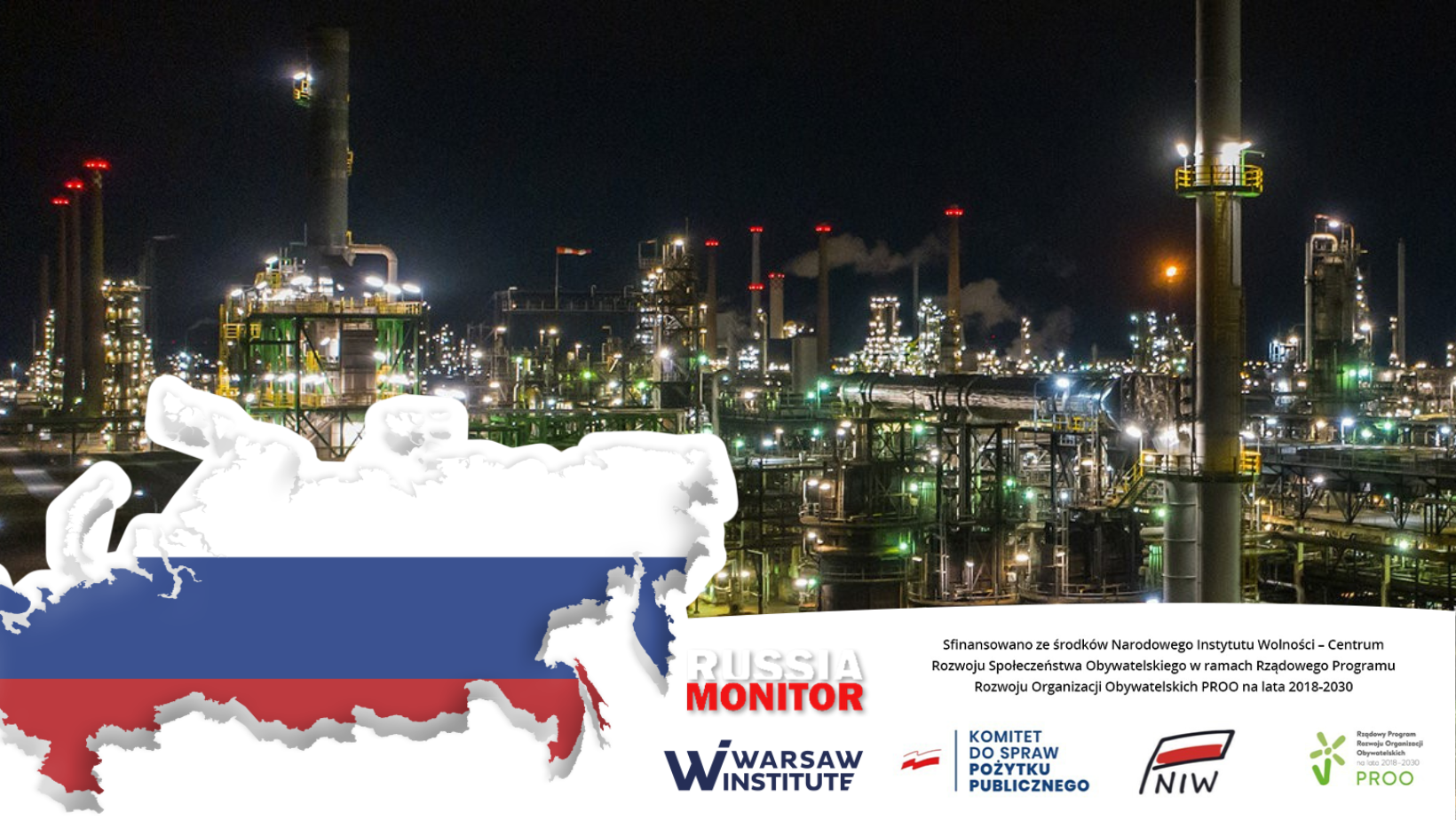
Russia Monitor is a review of the most important events related to Russian internal and external security, as well as its foreign policies.
Date: 29 March 2023 Author: Grzegorz Kuczyński
Schwedt Refinery Remains Within Germany’s Government’s Mandate
Germany’s Federal Administrative Court threw out a case brought by Russian oil company Rosneft against Berlin’s move to place its German subsidiaries under trusteeship and take control of the Schwedt refinery. The German government seized control of Rosneft Deutschland and RN Refining & Marketing last September. Both had a controlling stake in a refinery in Schwedt in eastern Germany.

Rosneft holds a 54.17 percent stake in the refinery, while Shell Deutschland, a subsidiary of Royal Dutch Shell holds a 37.5 percent stake with the remaining 8.33 percent stake held by Italy’s Eni. Schwedt has traditionally supplied 90 percent of the gasoline, diesel, jet fuel, and fuel oil used in Germany’s capital city. It also accounts for 12 percent of Germany’s total oil refining capacity. Under the law, the German government put Rosneft’s German unit under the trusteeship of the industry regulator to counter the threat to the security of the energy supply. Germany has taken control of Russian oil giant Rosneft’s stakes refineries to safeguard the country’s fuel supplies amid EU sanctions against Moscow, according to the country’s economy ministry. A former Rosneft executive told a court hearing that the company struggled with some banking and insurance issues in March 2022, shortly after Russia invaded Ukraine. The situation went back to normal last summer, he added. Germany’s Economy Ministry Robert Habeck welcomed the court ruling and said it plans to extend the trusteeship for the Rosneft subsidiaries for another six months as the trusteeship expired on March 15. According to Germany, Poland could possibly deliver oil via the oil port in Gdańsk to the German Schwedt Refinery (PCK), but the Polish side made a condition that Rosneft would be expropriated by Germany before deliveries would start, and this has not happened. The German government has passed a draft amendment to the law providing for selling assets under trust. In practice, the current law bans such transactions while its amended version provides for such an option to safeguard the country’s energy security. The amended law will be voted on by Bundestag in April and Bundesrat in May. German crude oil imports from Russia dropped 99.9 percent in January 2023 compared to January 2022 due to the EU’s embargo on Russian oil. About 3,500 tons of Russian crude oil were imported to Germany in January, according to the Federal Statistical Office. Russia’s share fell to 0.1 percent in January 2023 from 36.5 percent a year earlier.
Support Us
If content prepared by Warsaw Institute team is useful for you, please support our actions. Donations from private persons are necessary for the continuation of our mission.
All texts published by the Warsaw Institute Foundation may be disseminated on the condition that their origin is credited. Images may not be used without permission.
















